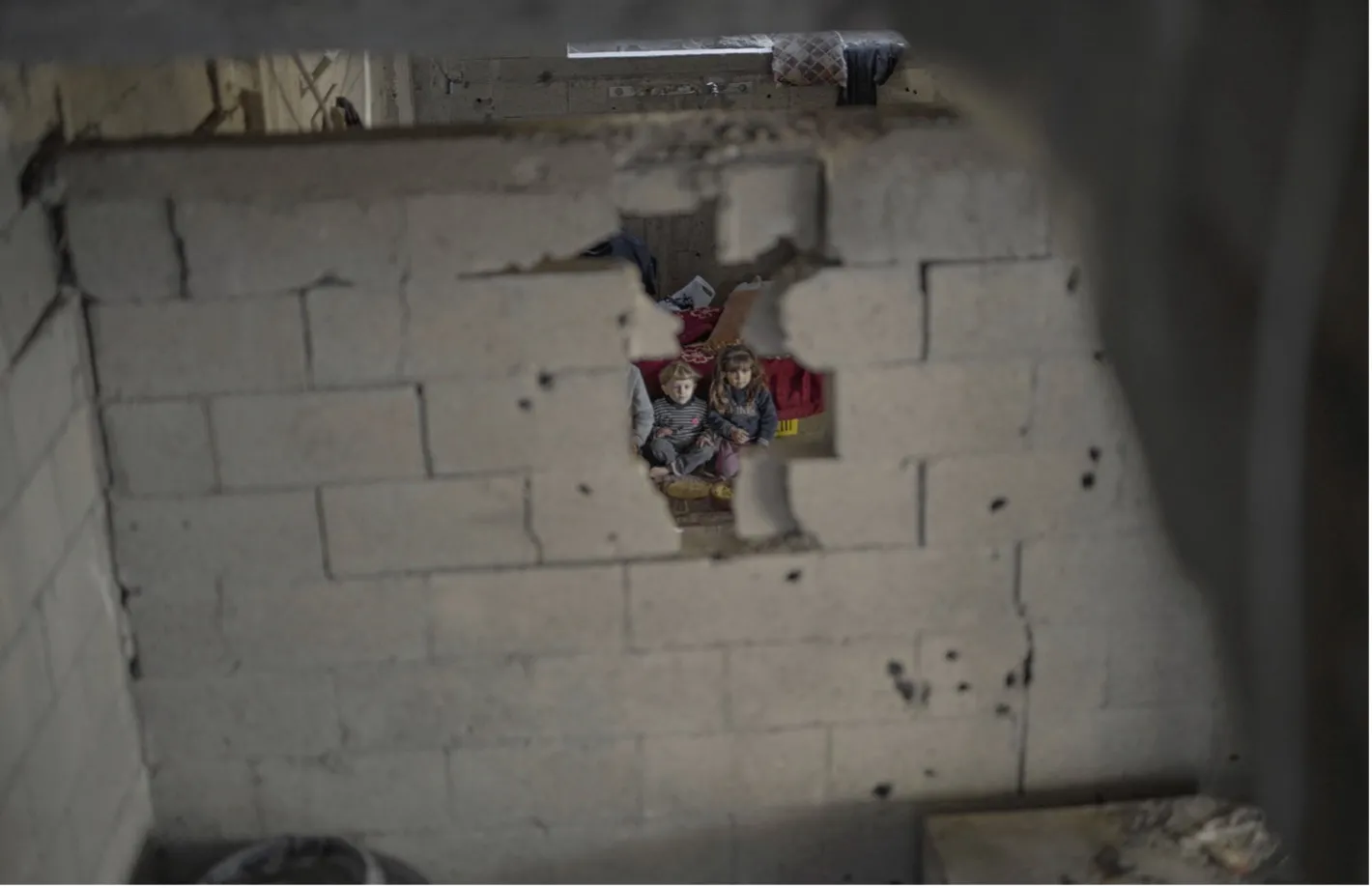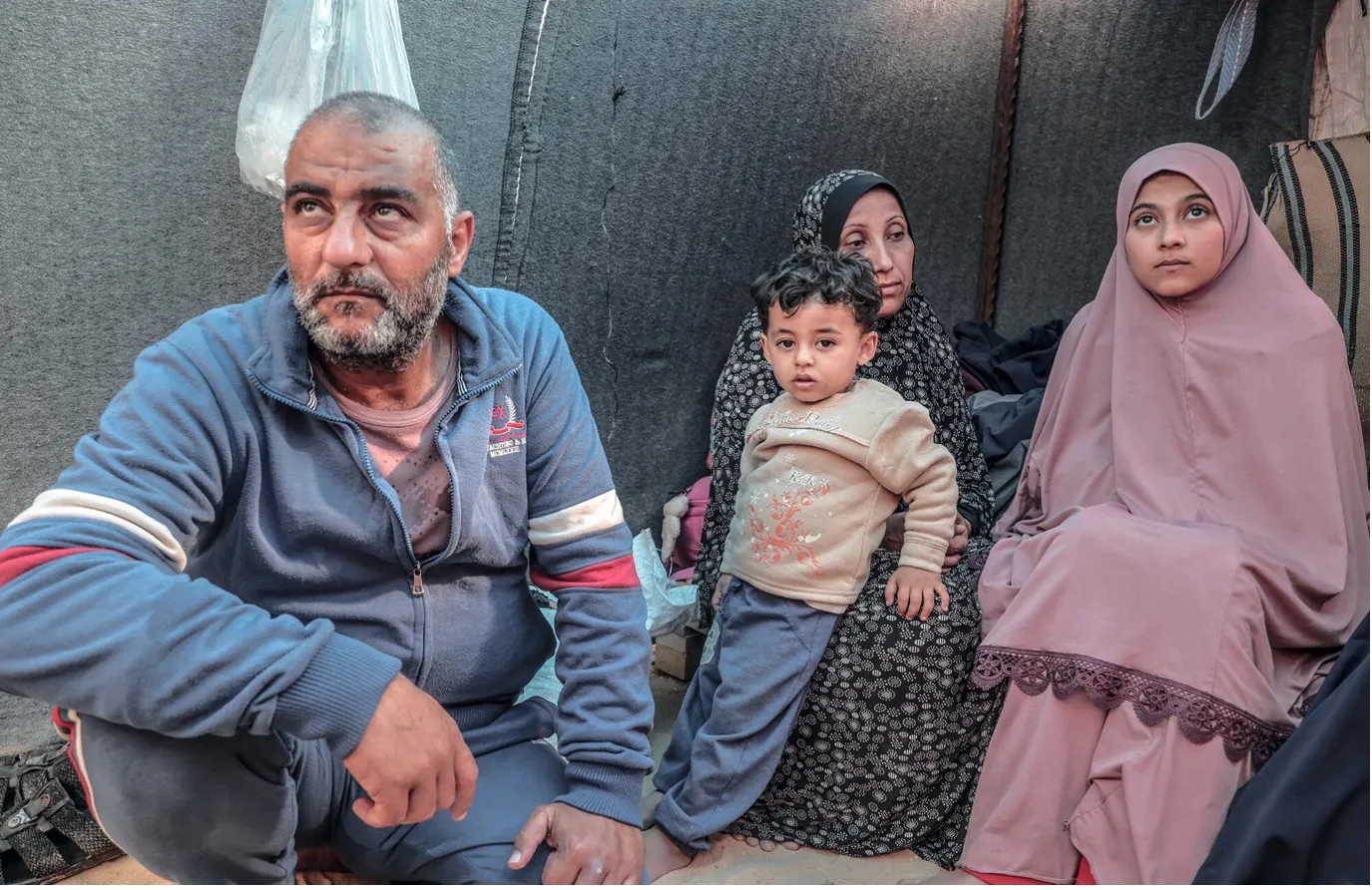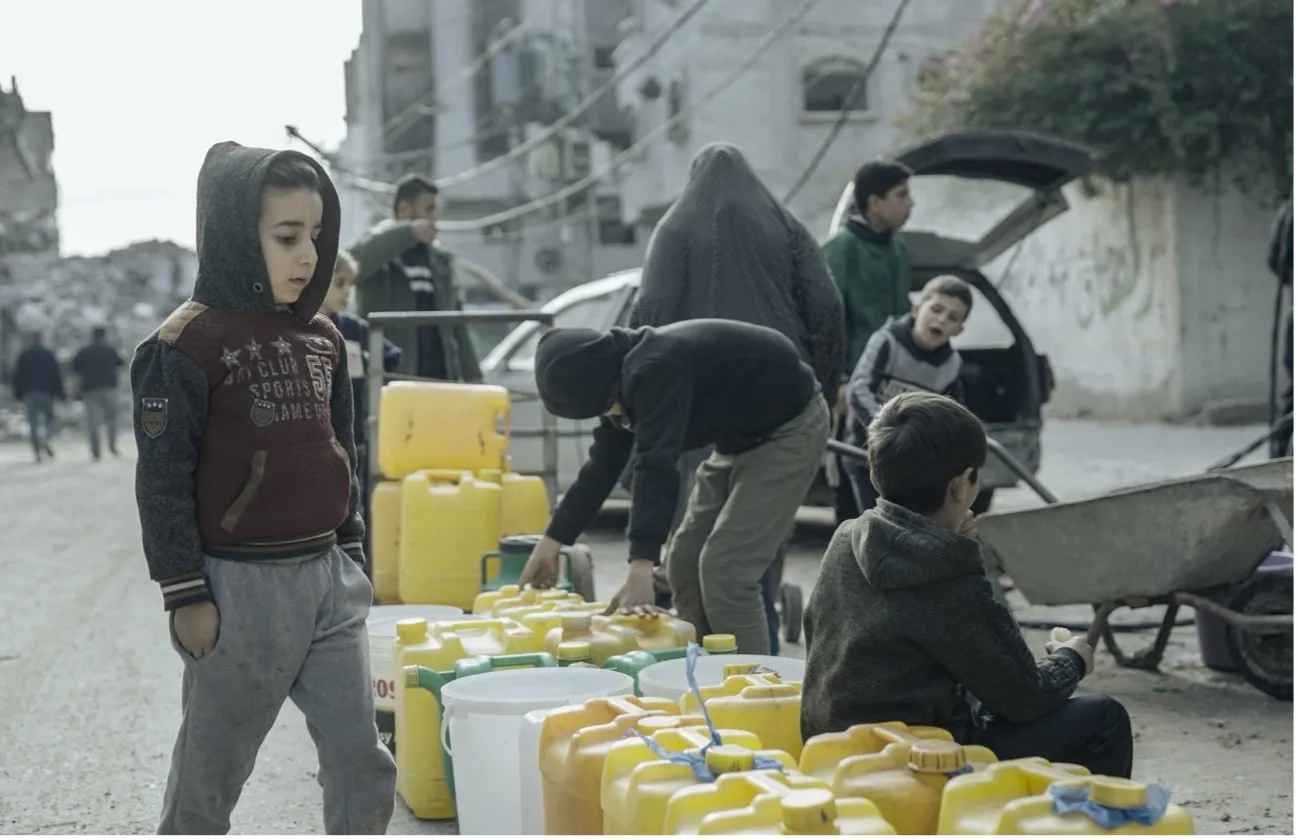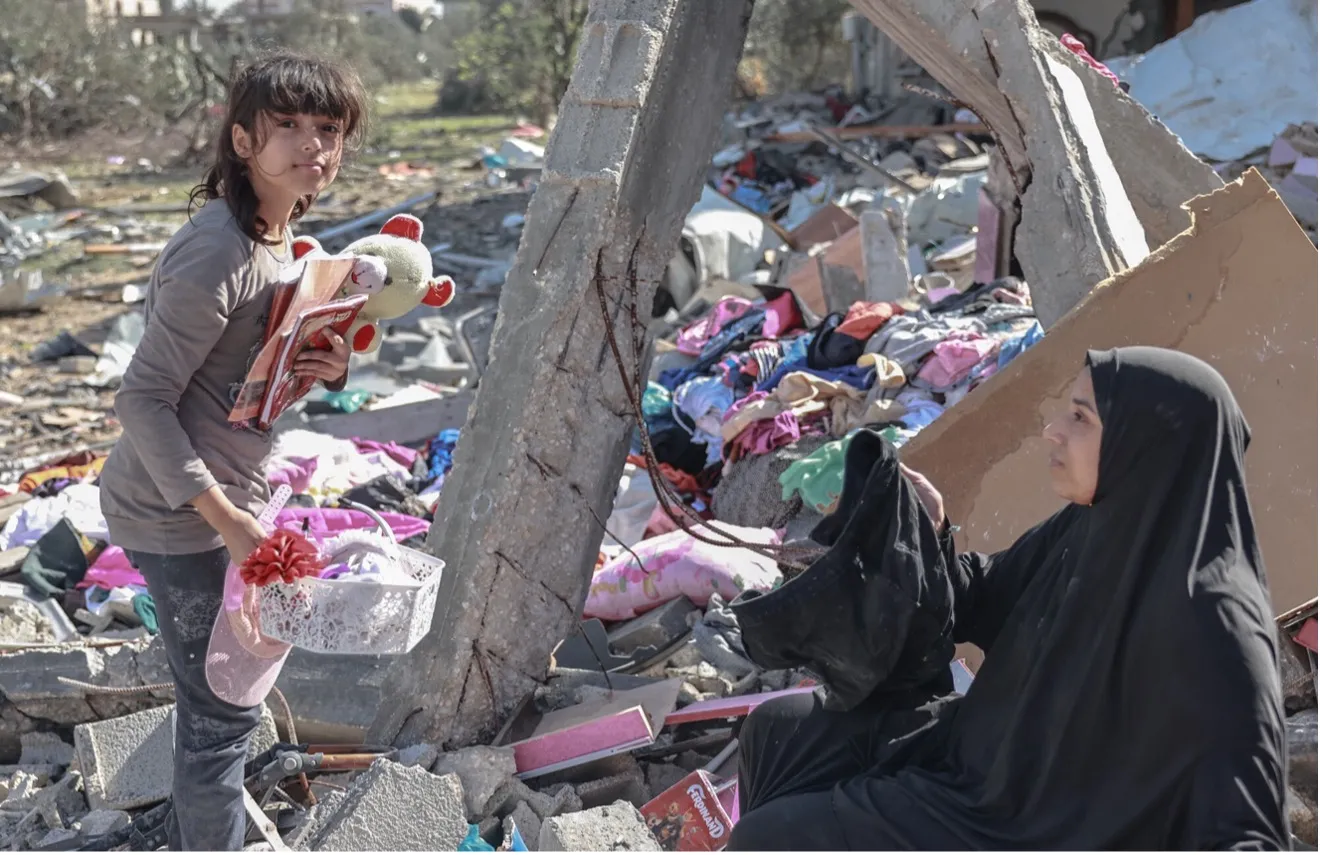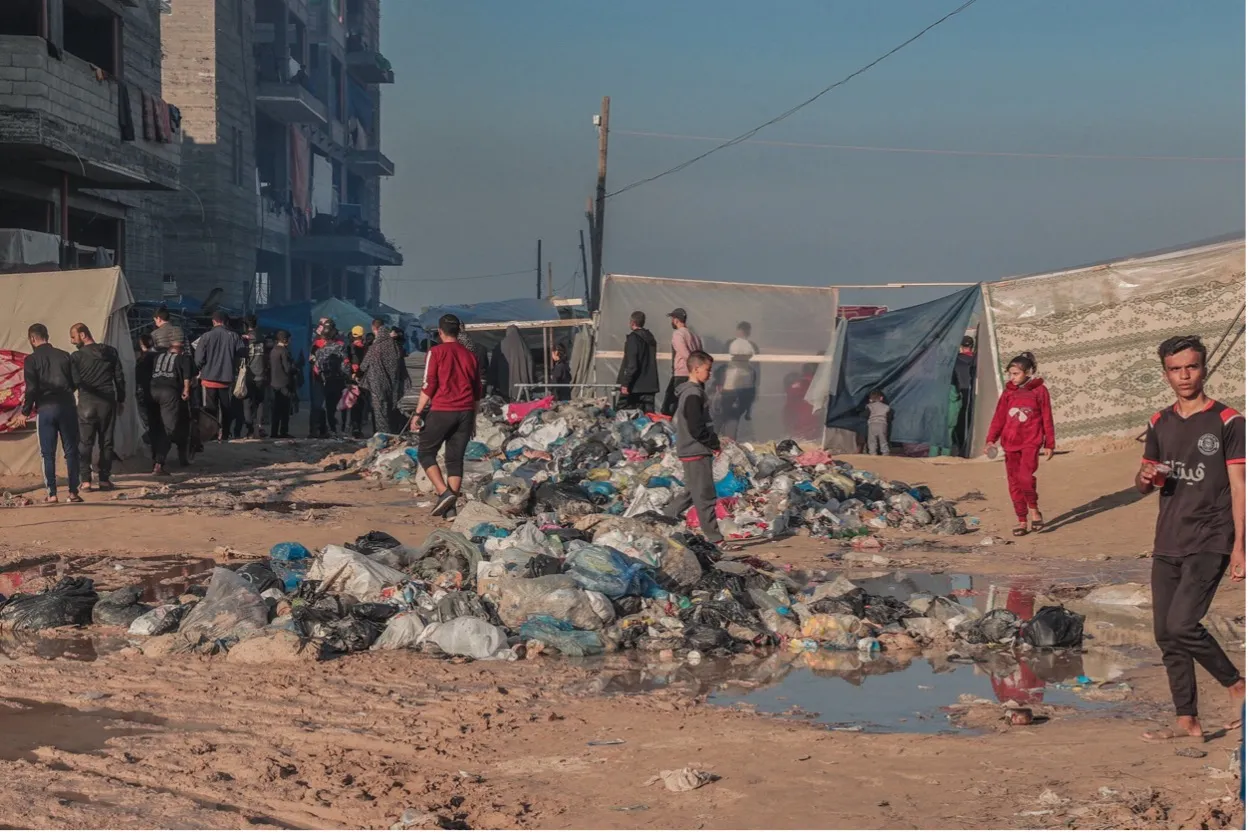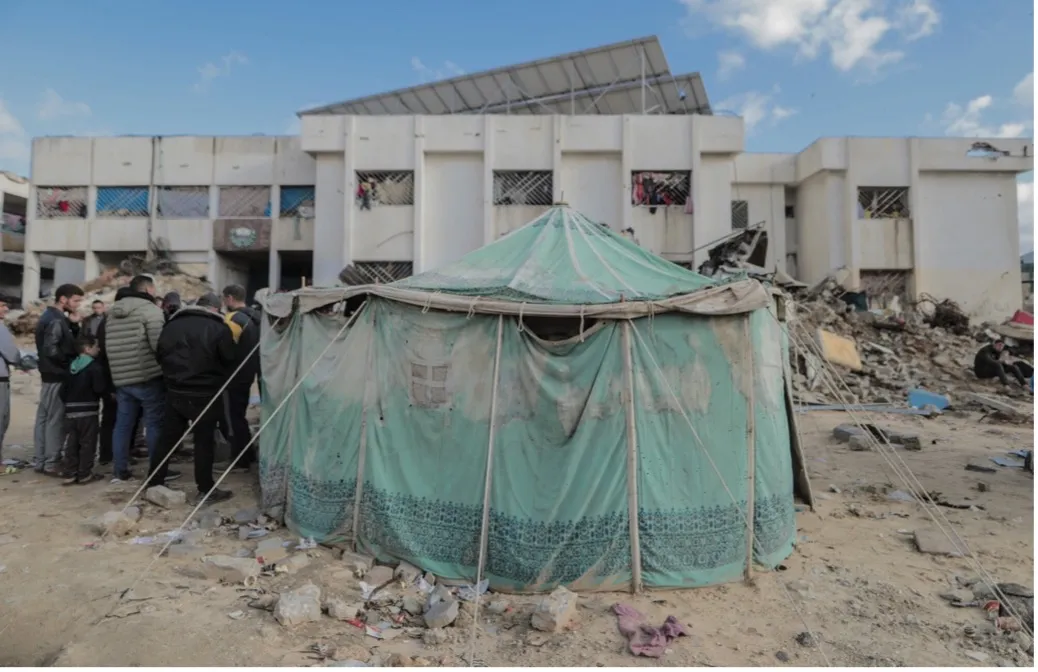The war in Gaza forced Fouad and his family to flee their home, so he now lives with his children in a makeshift camp near the Egyptian border.
“Nobody cares about us,” he says. “Nobody is looking for us. There is no life at all.”
Almost four months after the devastating conflict began, over two million Palestinians are now living like Fouad and his family — hour-to-hour, at risk of hunger and preventable diseases as well as airstrikes, in precarious camps, shelters, or, at best, homes or apartments with deplorable living conditions.
Nearly 70 percent of the homes in Gaza have been destroyed or severely damaged, leaving nearly 75 percent of the population displaced, with many setting up shelters from salvaged material, or in sheds, or unfinished buildings.
There, exposed to nighttime temperatures that can get as low as 5C (41F), they are unable to adequately protect children, pregnant women, and the elderly from the elements or preventable disease.

